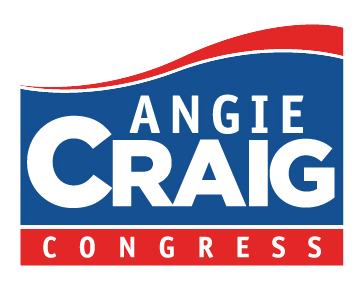By: Sam Wilmes
3/20/2020
Local nonprofit agencies on Thursday said already razor-thin profit margins and a shark spike in demand have them worried that a prolonged coronavirus pandemic could be perilous for their future.
The comments came during an hour-long conference call with 2nd District Congresswoman Angie Craig, DFL-Minnesota, to discuss the impacts they are experiencing in providing services as COVID-19 continues to wreak havoc on the U.S.
‘We’re all flying blind here’
HealthFinders Executive Director Charlie Mandile is concerned with the lack of testing currently offered for the coronavirus, adding the Minnesota Department of Health is only testing health care workers, those who are hospitalized and residents of long-term care facilities, due to the shortage.
“It really feels like we’re all flying blind here,” he said.
HealthFinders, which has clinics in Northfield and Faribault, is proactively monitoring coronavirus cases and is focused on coordinating with local health care systems on being a safety valve, triage center and a place for medical, dental and mental health care while doing as much care as possible via telemedicine. A major part of the organization’s approach is having resources in Spanish, Somali and English languages to accommodate its diverse patient demographic.
HealthFinders has postponed its largest fundraiser of the year and has transitioned its dental clinic to operating on an emergency basis only.
Dakota Child and Family Clinic Executive Director Miranda Knoll said she was worried her organization wouldn’t be able to stay open due to the spike in demand and thin profit margins. She noted telehealth is an option, but the internet and phones have proven unreliable within the facility. She added unequal allocations to larger hospitals leaves those in rural settings with fewer options. To Knoll, the WIC program has been unreliable, and patients are concerned over a potential public charge that could put their status in the U.S. in jeopardy.
Other nonprofit leaders on the call said they were concerned supplies could decrease at a time when demand skyrockets due to the pandemic. Eagan-based The Open Door Executive Director Jason Viana suggested Congress incentivize donations and help low-income students from relatively affluent areas receive needed services. He called on Congress to allow delayed rent payments as families across the nation trim spending to combat reduced hours or unemployment.
Minnesota Council on Nonprofits Public Policy Director Marie Ellis discussed the lost income museums and theaters will face from the loss in ticket revenue. She anticipates her organization will be able to make up some of that from an e-learning program, but she doesn’t expect that will completely erase the loss. Ellis requested any tax relief allocated to for-profit companies be available for non-profits as a tax benefit.
Nonprofits are 13% of the state’s workforce, but 72% of Minnesota nonprofits have less than six months of cash on-hand, which might pose economic turmoil in the coming months as the pandemic continues. Concern was also expressed over the impacts social isolation and stress caused by the virus could have on low-income people.
Three Rivers Community Action Executive Director Jenny Larson said they “are seeing a huge need at Three Rivers,” and was worried proposed legislative action to combat the pandemic won’t be enough to attend to the needs of low-income residents.
“I’m concerned with what is going to happen with them,” she said, adding Congress needs to ensure cash assistance doesn’t harm the ability of low-income people to qualify for other programs like the Supplemental Nutrition Assistance Program and energy assistance. She called on state, local and federal partners to relax re-housing requirements.
St. Paul Park-based Friends in Need Food Shelf Executive Director Michelle Ragath requested food shelf volunteers receive quicker COVID-19 tests as the food shelf faces a sharp uptick in customers and expressed concern about hospitality workers who serve homeless clients being laid off.
United Way of Hastings Executive Director Meri Mellick noted her organization and Meals on Wheels are partnering to deliver food bags to students in need within the Hastings School District. She added that could reduce pressure the influx of demand poses for the food shelf.
Mellick said she was concerned about what happens to people who test positive for the coronavirus while in a domestic violence shelter or while working as a health care professional. She added the United Way of Hastings is starting an emergency relief fund to help clients and is introducing “virtual visits with grandma.”
Craig vows her support
In a press release Friday, Craig advised people to contact their local food shelves by phone or email as they see an increase in demand, check with community resources by email to see if they are doing virtual visits to minimize social distancing turning into isolation, and use technology to connect with each other.
Congress is in the process of developing the next stimulus bill, and Craig hoped the discussion would help her understand nonprofit needs. She stressed irregardless of the economic impact, Minnesotans must protect each other by staying home as much as possible.
Craig indicated unemployment insurance is a top priority for Congress, adding a bipartisan bill allocates more than $3 billion for vaccines and treatments and $2.2 billion in prevention, preparedness and response measures and free coronavirus testing to those in need. She said she wants to ensure furloughed workers are granted access to paid sick and family leave.
Craig added food security is another top priority along with federal aid being allocated to her constituents. She called on people to help older volunteers.
“You have my commitment to continue to work on behalf of nonprofits,” she said.
